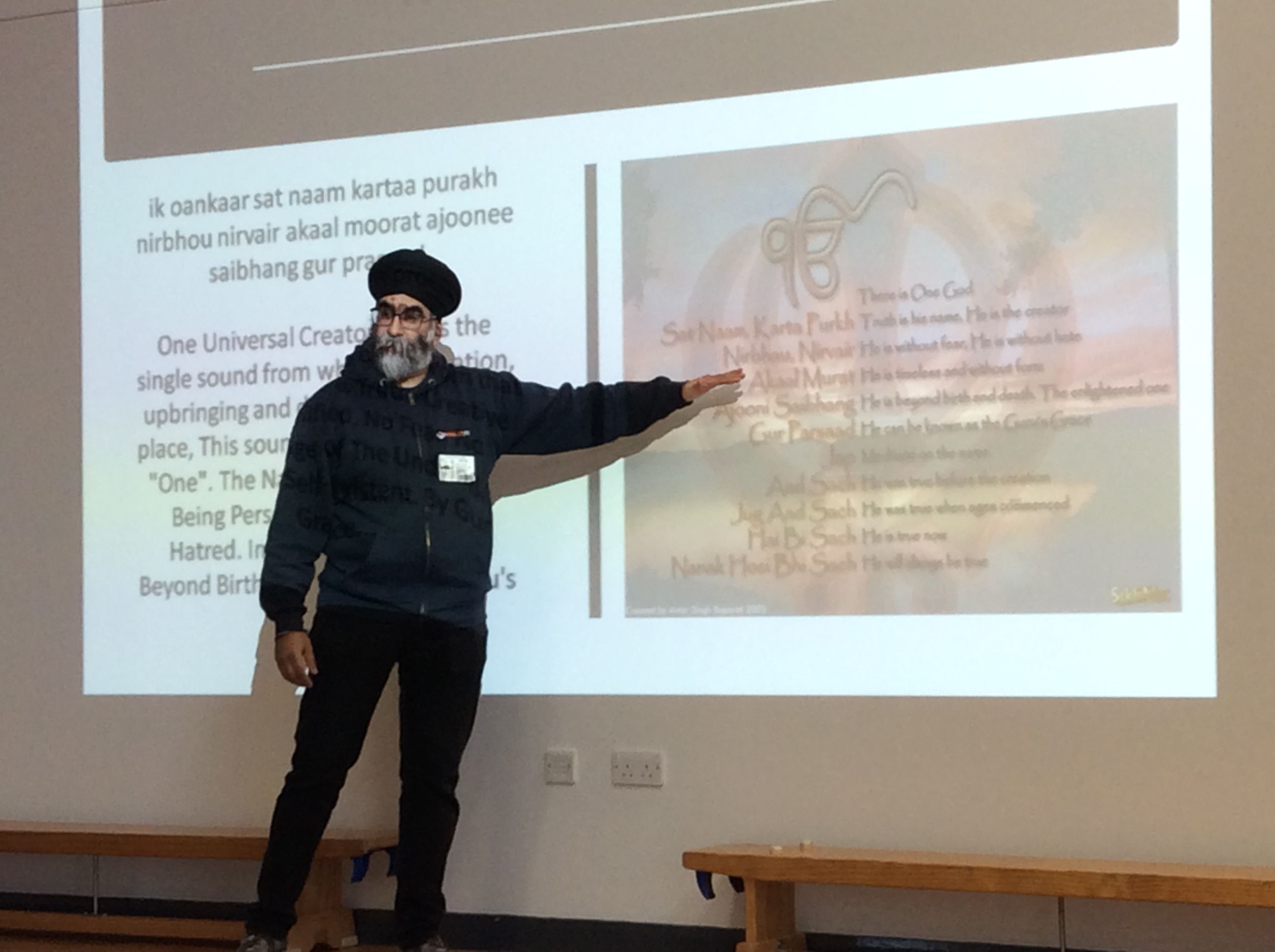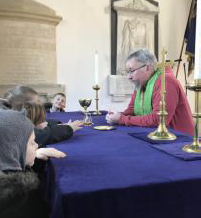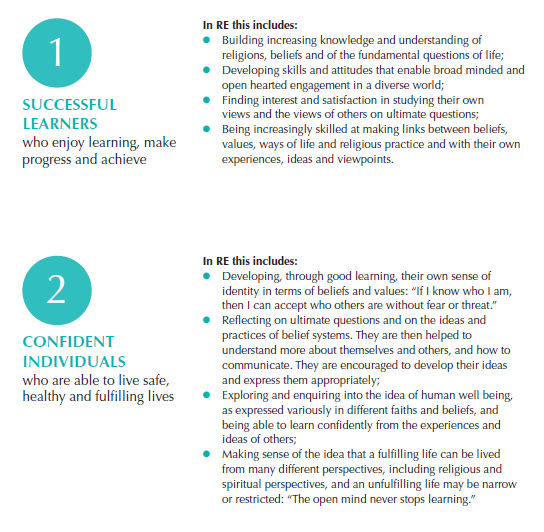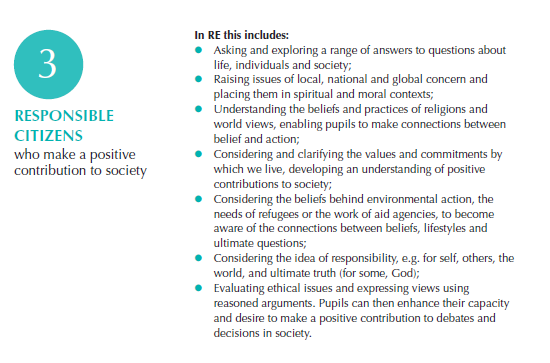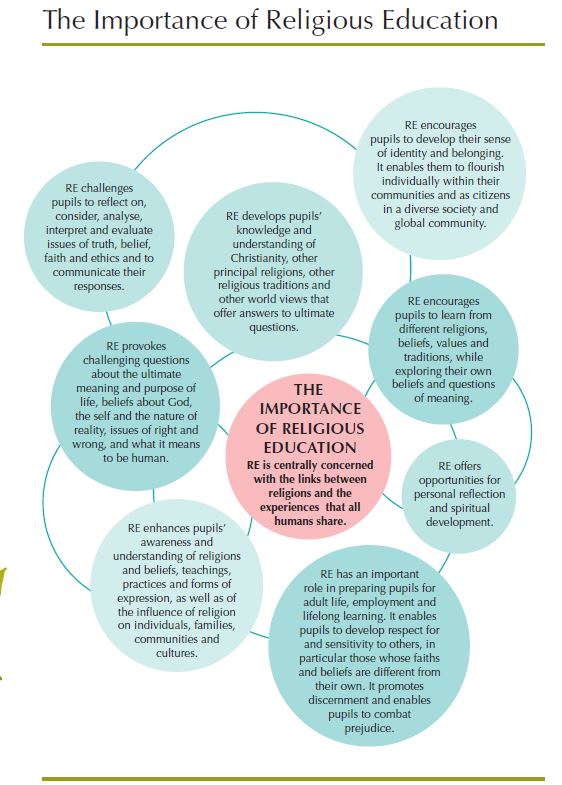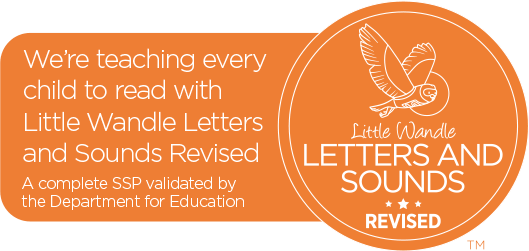Religious Education
 Religious Education Curriculum Intent:
Religious Education Curriculum Intent:
Nurture: We believe that to be able to embrace the challenges of creating a happy and successful adult life, pupils need knowledge that will enable them to make informed decisions about their wellbeing, health and relationships and to build their self-efficacy.
Curiosity: Encouraging pupils to try new activities and show confidence, independence and resilience in the face of challenge. Exploring a range of different ways to support themselves and others and make informed decisions about their wellbeing.
Diversity: To help children know the importance of respecting the differences of others, either in school or the wider world. Children should be able to identify and modify their own feelings socially and emotionally and know the importance of self-respect and how this links to their own happiness.
Ambition: To help prepare pupils for the opportunities, responsibilities and experiences of adult life to ensure our pupils become successful adults who make a positive contribution to society.

Religious Education is taught in accordance with the Lincolnshire Agreed Syllabus. As a Church school, great emphasis is placed upon the teaching of Christianity. However, we recognise that our children are growing up in a multi-cultural society and a number of major world religions are also studied.
Through RE, we aim to:
- develop pupils’ knowledge and understanding of Christianity as well as other principal religions and world views
- focus on concepts as well as content, within the context of enquiry-based learning
- explore authentic religious material, e.g. sacred texts
- reflect diversity in terms of the changing religious landscape of the UK so that they are prepared for life in modern Britain engage and challenge pupils
- reflect pupils’ own experiences and provide a safe space for discussion
- present religious belief as a real, lived phenomenon, not something exotic or belonging to the past
- take into account the increase in the number of people with non-religious beliefs and identities
- provide opportunities for personal reflection and spiritual development
- help to prepare pupils for adult life, enabling them to develop respect and sensitivity for others

